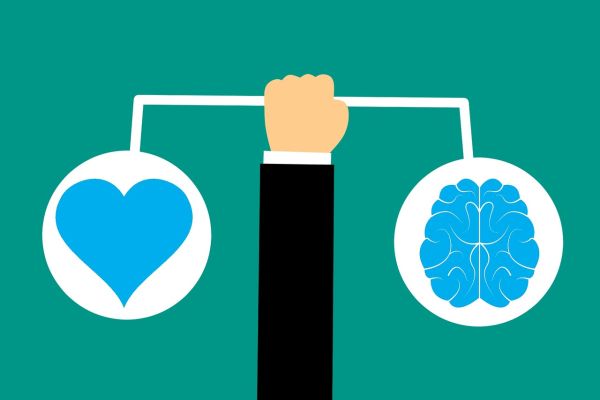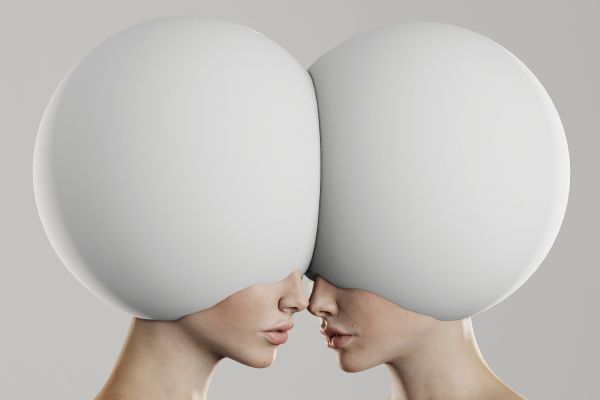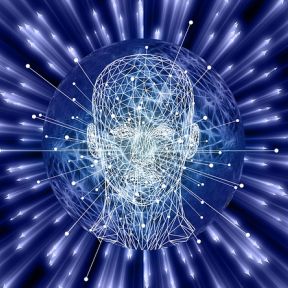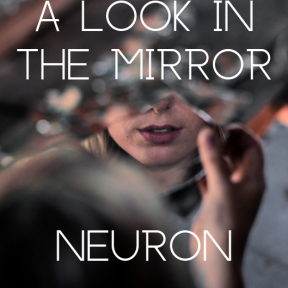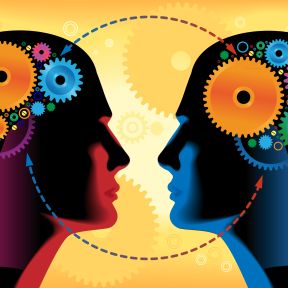
Mirror Neurons
Mirror neurons are a type of brain cell that is activated both when performing an action and when observing another individual perform that same action, a process thought to help an individual recognize or understand the behavior of another. Mirror neurons were first discovered in the brains of macaque monkeys in the 1990s; since then, similar neurons have been identified in the brains of birds, mice, and, perhaps most notably, humans.
The discovery of mirror neurons generated significant excitement in the scientific community, especially in the late 2000s and early 2010s, when many researchers began to argue that mirror neurons were a cornerstone of human social skills, particularly empathy and theory of mind. Since then, however, the significance of human mirror neurons (and in some cases, their very existence) has been called into question, with some scientists now arguing that many of the findings based on the activity of such neurons have been overhyped or misconstrued. Research into mirror neurons is ongoing and much about their influence on behavior has yet to be fully understood.
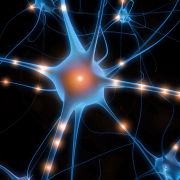
Individual mirror neurons were first identified in the premotor cortex and inferior parietal lobule of the macaque brain. Similar findings soon followed in other animals.
Studies on humans have generally been less definitive than those done on animals because it is substantially more difficult to record the activity of a single neuron in human brains. However, studies using neuroimaging procedures, most often fMRI, have found regions of the human brain that appear to behave like the macaques’ mirror neurons—that is, they are activated when a subject performs a task and when the subject observes another person doing the same. Some very small studies have implanted electrodes into human brains to successfully identify individual mirror neurons.
These findings have led some researchers to speculate that human mirror neurons, operating in our highly sophisticated brains, are responsible for a wide array of human social behaviors, from imitating someone else’s actions to learning music to feeling empathy. The "broken mirror theory" of autism postulates that these neurons are at the heart of the disorder. However, some claims about mirror neurons—including some that have been disseminated widely in the media—have yet to be substantiated by research.
So far, mirror neurons have been identified in only a few animal species, including macaques, marmosets, songbirds, and mice. Certain animals such as dogs are strongly suspected of having mirror neurons, due to their ability to recognize and mirror the actions of others—including their human owners—but their presence has not been definitively confirmed as yet.
Mirror neurons are motor cells that are activated by an action, both when it is performed by the individual and when it is performed by someone else; the actions do not need to occur sequentially. Some mirror neurons appear to only respond to one action, or to a limited range; others respond to a wider variety of actions. Some mirror neurons may be activated when the sound of a particular action is heard—for example, the sound of ripping up a piece of paper.
Some researchers believe that mirror neurons could help explain some of the most complex aspects of human behavior and culture—including our capacity for language, our ability to understand and feel the emotions of others, and our ability to work together to advance far beyond any other known species. The neuroscientist Vilayanur Ramachandran even went so far as to call them “the neurons that shaped civilization,” though others have contested that claim as an exaggeration.
Mirror neurons received significant media attention in the 2000s and were painted by some scientists as the key to many of our advanced social abilities. However, many of the more significant claims about mirror neurons—for example, that deficiencies in mirror neurons explain autism, or that the ability to simulate another’s action is necessary to understand it—have not stood up to scrutiny. Most critics, however, acknowledge that mirror neurons may play a critical role in human behavior; we just don’t yet fully understand what that is.

Scientists have long sought to identify the biological and neurological mechanisms that allow humans to, for example, imitate other people’s actions, empathize with others’ grief, and decipher the motivations for others’ behaviors without being explicitly told. In the eyes of some, mirror neurons could be the missing puzzle piece, providing scientists with a “unifying framework” to help explain our capacity for imitation, empathy, theory of mind, and other uniquely human skills. Researchers have also offered theories linking deficiencies in mirror neurons to mental health or developmental disorders, including schizophrenia and autism, though some of these have been contested by other researchers and mental health advocates.
Many researchers have theorized that mirror neurons are responsible for humans’ ability to feel empathy; some have even suggested that highly empathic people have hyperactive mirror neuron systems. However, the evidence for these claims is not yet entirely conclusive; one recent review, for example, found only a weak connection between mirror neuron activity and emotional and cognitive empathy, and no connection with motor empathy. It’s highly possible that mirror neurons play some role in human empathy, but claims that they are fully responsible for our ability to feel others’ pain may be overblown.
A hallmark feature of antisocial personality disorder, and the related trait of psychopathy, is a lack of affective empathy, and because mirror neurons are thought to be responsible for empathy, some researchers have suggested that psychopaths may have dysfunctional mirror neurons. Some small studies have supported this idea, finding that people high in psychopathic traits show reduced activation in their mirror neuron systems when engaging in emotion-processing tasks.
Researchers have hypothesized that dysfunctional mirror neurons may be partially responsible for some schizophrenia symptoms, particularly impairments in social cognition. Some small studies have found that people with schizophrenia have reduced mirror neuron activity, though results are preliminary and research is ongoing.
One widely disseminated claim surrounding mirror neurons is the “broken mirror theory,” which suggests that dysfunctions in the mirror neuron system are to blame for autism. Deficient mirror neurons, the theory goes, underly the difficulties autistic people have in understanding others’ intentions or empathizing with their emotions. However, some influential research reviews have disputed this claim, for both behavioral and structural reasons; for example, while there are differences between autistic and non-autistic brains, they are not currently apparent in the parts of the brain thought to contain mirror neurons.
